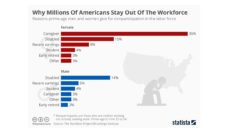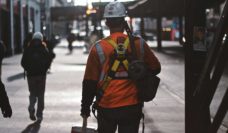Everybody pees. But not everybody is able to pee when they need to. Low-wage employees tend to hold little control over their work day, and some are unable to leave their workstations outside of scheduled breaks. Bus drivers are especially limited by logistical constraints. According to a recent survey, 82% of operators disclosed they regularly “hold it in” while they are on the job.
What prevents transit workers from having regular bathroom access? Bus drivers are discouraged from leaving buses unattended, so they cannot take breaks in the middle of their routes. Due to the shortage of public restrooms, drivers often cannot use the restroom mid-route unless they have relationships with area businesses. Additionally, most bus routes are created by computer programs. These programs do not account for restroom breaks in between runs. When operators are behind schedule, they face additional pressure to avoid breaks. As traffic worsens in most cities and routes remain unchanged, driving without breaks is becoming a more common phenomenon.
Holding it in causes negative health effects. Over 30% of bus operators report urinary tract infections or kidney infections, compared to 11% of the general population. Twenty-five percent have soiled themselves on the job. In addition to psychological distress, sitting in soiled clothing causes dermatitis and other skin issues.
Lack of restroom access for transit workers also puts everyone else on the road in danger. People who cannot urinate when their bladder is full experience attention problems equivalent to staying awake for 24 hours or having a blood alcohol level of 0.05%. Commercial drivers lose their licenses for driving at a blood alcohol level of 0.04% if they’re pulled over. Why the double standard?
The Occupational Safety and Health Administration (OSHA) requires employers to “provide their employees with toilet facilities separated for each sex in all places of employment.” OSHA’s loose guidelines on restroom access do not sufficiently protect workers from health risks posed by limited restroom access. Like access to adequate food, water, and shelter, access to clean restrooms at necessary intervals is a basic need.
Databyte via “Restroom Access: A Guide for Local Unions,” Almagamated Transit Union.














